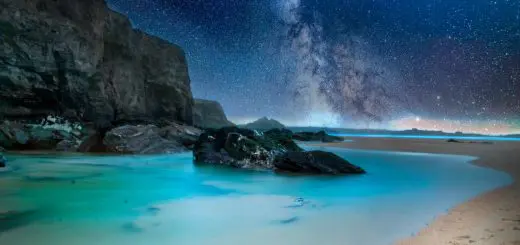How New Zealand Leads in Sustainability and Tourism

Looking for more amazing products? Check out our online store and explore our collection here! Happy shopping!
Before diving in, please note: This post is for informational purposes only. If you’d like to know more about how we approach topics, feel free to check out our friendly Disclaimer Page.
Hey there, amazing readers! 
We’re committed to delivering quality posts, and your support (even just sticking around despite the ads) means everything to us. So, bear with us, and thanks for helping us keep the good vibes rolling. Now, on to the fun stuff!
TRANSLATE BUTTON AT THE END OF THE ARTICLE
A Quick Overview
New Zealand stands out as a beacon of sustainable tourism, intertwining the preservation of its stunning landscapes with responsible travel practices.
With its breathtaking nature, rich Māori culture, and innovative approaches to eco-friendliness, New Zealand has positioned itself as a global leader in sustainability and tourism.
This article explores how the country achieves this balance, ensuring that travelers can experience its wonders while contributing to its preservation.
Discovering New Zealand’s Unique Sustainable Tourism Model
New Zealand’s approach to sustainable tourism is a thoughtful blend of environmental consciousness and the desire for adventure.
The country has developed a framework that prioritizes ecological integrity while promoting economic growth through tourism.
The Tourism Sustainability Commitment (TSC) is a prime example.
This initiative encourages businesses to adopt sustainable practices.
The TSC includes a wide range of businesses, from hotels and restaurants to adventure tourism operators.
A growing number of companies focus on leaving a smaller carbon footprint.
They use renewable energy, minimize waste, and support local communities.
The government plays a supportive role, providing guidelines and resources for sustainable tourism practices.
Many tourism operators engage in local conservation projects, thereby giving back to the environment they rely on.
The focus on community-led tourism empowers local voices and respects cultural heritage.
This model also promotes off-the-beaten-path destinations, reducing pressure on popular tourist spots.
New Zealand’s narrative around sustainability resonates with travelers, encouraging them to explore responsibly.
Sustainable tourism is a core part of New Zealand’s brand identity.
By embracing this model, New Zealand not only protects its natural and cultural resources but becomes an attractive destination for eco-conscious travelers.
The Balance Between Nature and Adventure in New Zealand
Travelers flock to New Zealand for its stunning landscapes, from lush forests to rugged mountains.
But what makes it special is how it melds adventure with environmental respect.
Think about the famous Tongariro Alpine Crossing.
This trek offers breathtaking views while emphasizing conservation.
Adventure tours often include educational components about local ecosystems and environmental impact.
Activities like kayaking in pristine waters or hiking through ancient forests connect visitors with nature directly.
Companies offering skydiving or bungee jumping prioritize safety and environmental awareness in their operations.
Many operators use eco-friendly gear, ensuring that even high-adrenaline activities minimize their impact.
This balance promotes outdoor education, allowing travelers to appreciate the landscapes they explore.
Imagine hiking in Fiordland National Park, where you can witness pristine ecosystems and diverse wildlife.
This hands-on engagement fosters a deeper understanding of New Zealand’s unique environment.
Visitors leave with memories of both adventure and a newfound respect for nature.
New Zealand proves that thrill-seeking and sustainability can go hand in hand, creating memorable, responsible experiences.
Eco-Friendly Practices: A Core of Kiwi Hospitality
Kiwi hospitality goes beyond friendly smiles.
It embraces eco-friendliness in every aspect of service.
Many hotels and lodges have implemented green practices, such as energy-efficient lighting and water conservation systems.
The emphasis on locally-sourced food means that restaurants support local farmers while serving fresh, delicious meals.
Some accommodations offer guests the chance to participate in sustainability efforts, like tree planting days.
Eco-lodges often immerse guests in nature while providing modern comforts.
Even the smallest details count, from biodegradable toiletries to recycling programs.
Staff training emphasizes the importance of sustainability, ensuring everyone is on the same page.
Guests appreciate the opportunity to stay somewhere that aligns with their values.
Many establishments share their sustainability stories, inspiring others in the industry.
A growing trend is the rise of zero-waste dining experiences, where every ingredient is utilized.
When you visit New Zealand, you’re not just enjoying a vacation; you’re supporting a movement towards more responsible tourism.
How Māori Culture Enriches Sustainable Tourism Experiences
Māori culture is deeply intertwined with New Zealand’s identity, offering unique insights into sustainability.
The Māori worldview, known as "kaitiakitanga," emphasizes guardianship of the land and natural resources.
Many eco-tourism operators collaborate with Māori communities to provide authentic cultural experiences.
Visitors learn about traditional practices that have promoted sustainability for generations.
Cultural tours often include storytelling, weaving, and cooking classes, connecting travelers with the land.
Engaging with Māori art and traditions enriches the understanding of New Zealand’s heritage.
By honoring Māori customs, the tourism industry acknowledges the importance of indigenous knowledge.
Sustainable practices are not just modern inventions; they are rooted in Māori traditions.
The chance to visit marae (tribal meeting grounds) offers a glimpse into community life and values.
Travelers leave with a deeper appreciation for the connection between culture and the environment.
This collaboration ensures that tourism benefits local communities while preserving their heritage.
Conservation Efforts: Protecting New Zealand’s Biodiversity
New Zealand’s diverse ecosystems are home to unique flora and fauna.
Conservation efforts are vital to protect this biodiversity.
Organizations like DOC (Department of Conservation) lead initiatives to safeguard endangered species and habitats.
Many tourism operators participate in conservation programs, from beach clean-ups to wildlife monitoring.
The predator-free 2050 initiative aims to eliminate invasive species threatening native wildlife.
Guided tours often include information on conservation efforts, fostering a sense of responsibility among travelers.
Tourists can also volunteer with conservation projects, making their visit more impactful.
National parks serve as living laboratories for ecological research and public education.
The promotion of eco-sanctuaries allows visitors to witness successful conservation firsthand.
Each visitor becomes an ambassador for New Zealand’s natural heritage.
By prioritizing conservation, New Zealand ensures that its ecosystems remain vibrant for future generations.
It’s a mission that resonates with travelers who want to make a difference.
Renewable Energy: Powering New Zealand’s Tourism Future
New Zealand is a pioneer in renewable energy, which plays a critical role in its tourism industry.
Over 80% of the country’s electricity comes from renewable sources, primarily hydropower and wind.
Many tourism businesses use solar panels, significantly reducing their carbon footprint.
Eco-friendly lodges often promote energy conservation through smart technology.
The use of electric vehicles is on the rise, providing a cleaner way to explore the beautiful landscapes.
Sustainable practices are increasingly woven into the fabric of tourism experiences.
Renewable energy not only powers hotels but also supports transportation networks.
The push for greener energy sources aligns with travelers’ desires for eco-conscious options.
Tour operators are beginning to rely on electric boats and shuttles for tours.
By promoting renewable energy, New Zealand sets an example for the global tourism industry.
It’s a win-win for travelers and the planet, paving the way for a sustainable future.
Sustainable Transport: Getting Around Greenly in NZ
Getting around New Zealand doesn’t have to harm the environment.
The country offers various sustainable transport options.
Public transport, including buses and trains, is a convenient way to travel while minimizing carbon emissions.
Many cities promote cycling, with dedicated bike lanes and rental services available.
Electric vehicle (EV) charging stations are popping up across the country, making it easier for eco-conscious travelers to explore.
Some tourism operators offer green transport options, such as electric buses for tours.
Walking tours provide an intimate way to experience local culture and sights without the need for fuel.
Carpooling services also encourage visitors to share rides, reducing the number of vehicles on the road.
The availability of hybrid and electric rental cars adds more choices for environmentally-minded travelers.
Sustainable transport options contribute to a reduced traffic footprint, preserving New Zealand’s beautiful landscapes.
It’s also a great way to immerse yourself in the surroundings, breathing in the fresh air as you travel.
By choosing green transport, visitors can enjoy the journey just as much as the destination.
The Role of Local Communities in Tourism Sustainability
Local communities are the heartbeat of New Zealand’s tourism industry, and their involvement is crucial for sustainability.
Many tourism initiatives originate from the communities themselves, ensuring that local voices are heard.
Community-led tours allow visitors to connect with the culture and traditions of the area.
Local artisans often showcase their crafts, from weaving to pottery, providing economic opportunities.
Sustainable tourism empowers communities to take charge of their resources and environment.
Engaging with local communities fosters respect and understanding between visitors and residents.
Many tourism operators invest a portion of their profits back into community projects.
Local guides share their knowledge, offering authentic insights into the region.
The sense of pride in these communities is palpable, making for enriching experiences for travelers.
When visitors support local businesses, it creates a more sustainable tourism model.
It’s a beautiful cycle: tourists enjoy genuine interactions, while communities benefit economically.
Celebrating Nature: Eco-Tourism Adventures Await
New Zealand is a paradise for nature lovers, with eco-tourism adventures that celebrate the beauty of its landscapes.
Hiking the Routeburn Track or the Abel Tasman Coast Track allows visitors to immerse themselves in breathtaking scenery.
Wildlife tours offer opportunities to see native species, such as kiwis and dolphins, in their natural habitats.
Kayaking in the pristine waters of the Bay of Islands is a favorite for eco-conscious travelers.
Adventure activities like zip-lining and canyoning are designed with sustainability in mind.
Many eco-tourism operators focus on minimal impact, ensuring that nature remains undisturbed.
Whether it’s star gazing in Aoraki Mackenzie International Dark Sky Reserve or exploring geothermal wonders, nature takes center stage.
Tours often include educational components, fostering appreciation for conservation efforts.
Visitors leave with lasting memories and a greater understanding of New Zealand’s ecological significance.
Eco-tourism adventures not only enrich the traveler but also contribute to the preservation of natural wonders.
It’s a celebration of nature that invites everyone to be a part of the solution.
Sustainable Food Practices: Farm-to-Table Experiences
New Zealand’s culinary scene has embraced sustainability, offering delicious meals that highlight local produce.
The farm-to-table movement is thriving, with many restaurants sourcing ingredients from nearby farms.
Seasonal menus ensure that dishes are made with fresh, local produce.
Wineries often promote organic and biodynamic practices, which enhance the quality of their wines.
Culinary tours give visitors the chance to taste local specialties and learn about sustainable farming.
Many chefs prioritize sustainability, minimizing waste and maximizing flavor.
Farmers’ markets provide a vibrant space for locals and tourists to connect over fresh food.
The emphasis on sustainability extends to seafood, with many restaurants committed to ethical sourcing.
Visitors are encouraged to explore the rich flavors of New Zealand while respecting the land.
Sustainable food practices create a direct connection between diners and the environment.
Dining in New Zealand becomes a delightful experience that nourishes both body and soul.
How New Zealand Inspires Global Sustainable Tourism Trends
New Zealand’s commitment to sustainability is inspiring other countries to follow suit in their tourism practices.
The country’s innovative approach serves as a model for others looking to implement sustainable practices.
Initiatives like the TSC encourage businesses worldwide to adopt similar methods.
By prioritizing eco-friendly practices, New Zealand is setting a benchmark for responsible tourism.
Other nations are beginning to recognize the importance of preserving natural resources for future tourism.
International collaborations on sustainability practices have emerged, influenced by New Zealand’s success.
Eco-tourism conferences and workshops often showcase New Zealand’s initiatives as case studies.
The country’s emphasis on community involvement is a powerful reminder of the social aspect of sustainability.
New Zealand’s ability to balance adventure and conservation encourages travelers to consider their impact.
Many tourism organizations look to New Zealand’s strategies when developing their own sustainability frameworks.
It’s a ripple effect: when one nation leads, others are likely to follow.
Your Next Adventure: Visiting New Zealand Responsibly
Planning a trip to New Zealand?
Here are some tips to make your visit both memorable and sustainable.
Choose eco-friendly accommodations that prioritize sustainability.
Support local businesses instead of large corporations to ensure your money stays in the community.
Participate in conservation projects or volunteer opportunities during your stay.
Familiarize yourself with local customs and practices to show respect for Māori culture.
Use public transport or cycle whenever possible to reduce your carbon footprint.
Opt for guided tours that focus on environmental education and conservation efforts.
Be mindful of waste—carry reusable bags and water bottles during your adventures.
Share your experiences on social media to inspire others to travel responsibly.
Stay informed about the environmental impact of your activities, and adjust as needed.
Remember, every small action contributes to the larger goal of sustainability.
Conclusion
New Zealand stands as a testament to what’s possible when sustainability meets tourism.
The country’s dedication to preserving its natural beauty while providing unforgettable experiences is an inspiring model for the world.
From eco-friendly practices in hospitality to the vibrant involvement of local communities, every aspect of New Zealand’s tourism is steeped in a commitment to the environment.
As travelers, we have the power to make choices that align with these principles, creating a positive impact while experiencing the adventure of a lifetime.
So pack your bags, embrace the spirit of discovery, and let’s visit New Zealand responsibly!

The Enlightenment Journey is a remarkable collection of writings authored by a distinguished group of experts in the fields of spirituality, new age, and esoteric knowledge.
This anthology features a diverse assembly of well-experienced authors who bring their profound insights and credible perspectives to the forefront.
Each contributor possesses a wealth of knowledge and wisdom, making them authorities in their respective domains.
Together, they offer readers a transformative journey into the realms of spiritual growth, self-discovery, and esoteric enlightenment.
The Enlightenment Journey is a testament to the collective expertise of these luminaries, providing readers with a rich tapestry of ideas and information to illuminate their spiritual path.
Our Diverse Expertise
While our primary focus is on spirituality and esotericism, we are equally passionate about exploring a wide range of other topics and niches 

To ensure we provide the most accurate and valuable insights, we collaborate with trusted experts in their respective domains 
Our blog originally focused on spirituality and metaphysics, but we’ve since expanded to cover a wide range of niches. Don’t worry—we continue to publish a lot of articles on spirituality! Frequently visit our blog to explore our diverse content and stay tuned for more insightful reads.
Hey there, amazing reader! 
Check out our store here and take a peek at some of our featured products below! Thanks for being awesome!











